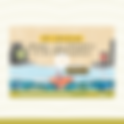Search Results
341 results found with an empty search
- Amended Guidelines on the Implementation of Gulayan sa Paaralan (GSP)
Department of Agriculture Amended Guidelines on the Implementation of Gulayan sa Paaralan (GSP) A document listing the updated components and strategies of implementation of the GSP Program. View and download Source: https://www.da.gov.ph/wp-content/uploads/2019/06/mc06_s2019.pdf Previous Back to Climate Change Resources Next
- Myrtle's Battle Against Climate Change
Seagrass-Watch Myrtle's Battle Against Climate Change A story book exploring the impacts of climate change on sea turtles, based on research and data from a real sattelite-tagged turtle. View and download Source: https://www.seagrasswatch.org/education/ Previous Back to Climate Change Resources Next
- The Philippine Climate Almanac (First Edition)
Oscar M. Lopez Center The Philippine Climate Almanac (First Edition) A collection of engaging data visualizations and interesting facts on past to recent climate-related events and disasters in the Philippines. View and download Source: https://www.omlopezcenter.org/the-philippine-climate-almanac/ Previous Back to Climate Change Resources Next
- Share the Facts About Mangroves
Conservation International Share the Facts About Mangroves A resource page that allows you to learn and share facts about mangroves. Explore Source: https://www.conservation.org/act/share-the-facts-about-mangroves Previous Back to Marine Ecosystems Next
- Our Projects | Change the Current
Change the Current is a climate change education program that leads to action. Why change the current? The Philippines is highly vulnerable to the effects of climate change, such as increased frequency of extreme weather events, extreme rainfall, and sea level rise. Children and youth are experiencing these effects, threatening their wellbeing, survival, and access to social services. To increase their ability to adapt to the climate crisis, we must change the current. Reference: UNICEF Environment and Climate Change Programme "The growth and skills I gained will always be instilled wherever I am in this walk of life. It was a life-changing Change the Current." — YSEALI Change the Current Participant How we're changing the current 60 learners 60 teacher-advisers Participants are selected from four DepEd Divisions that are vulnerable to climate change impacts: Albay, Dipolog, Samar, and Valenzuela. 32 youth leaders (18 to 23 years old) from all over the Philippines representing 25 projects for climate action 295 public school educators across Luzon, Visayas, and Mindanao Meet our Climate Changemakers The pilot run of Change the Current was an online training in partnership with the Department of Education's Disaster Risk Reduction Management Service and Youth Formation Division and UNICEF Philippines. The Young Southeast Asian Leaders Initiative (YSEALI) Change the Current (CTC) seeks to empower Filipino youth, 18 to 23 years old, by developing leadership and entrepreneurial skills and leading climate change-related projects in their communities. Participants are expected to attend a virtual training program and propose climate change adaptation and mitigation projects in their home communities. Fourteen emerging youth leaders joined us for the in-person component of YSEALI Change the Current. The eight workshops of Change the Current 2.0, program to equip teachers in implementing climate change education and action in schools across Luzon, Visayas, to Mindanao teaching and learning from 295 public school teachers. Our Partners Save Philippine Seas 2020-2024 All rights reserved
- Marine Wildlife Interaction Guidelines Posters Dugong
Marine Wildlife Watch of the Philippines Title I'm a paragraph. I'm connected to your collection through a dataset. Click Preview to see my content. To update me, go to the Data Manager. Button Source: I'm a paragraph. I'm connected to your collection through a dataset. Click Preview to see my content. To update me, go to the Data Manager. Previous Back to Marine Ecosystems Next
- Fintastic Not Fearsome
Save Philippine Seas, Marine Wildlife Watch of the Philippines Title I'm a paragraph. I'm connected to your collection through a dataset. Click Preview to see my content. To update me, go to the Data Manager. Button Source: I'm a paragraph. I'm connected to your collection through a dataset. Click Preview to see my content. To update me, go to the Data Manager. Previous Back to Marine Ecosystems Next
- Philippine Seas: A documentary by Atom Araullo
GMA Public Affairs Philippine Seas: A documentary by Atom Araullo A documentary showing the current state of our Philippine seas, with its rich biodiversity and the complex challenges faced by its ecosystems, marine life, and the people whose life depend on it. Watch video Source: https://www.youtube.com/watch?v=gxqgm-ruiW8 Previous Back to Marine Ecosystems Next
- Tropical Cyclone Wind Signals in the Philippines
PAGASA Tropical Cyclone Wind Signals in the Philippines A website page with information on the Tropical Cyclone Wind Signal system in the Philippines, including infographics on the different signal numbers Website Source: https://www.pagasa.dost.gov.ph/learning-tools/tropical-cyclone-wind-signal Previous Back to Climate Change Resources Next
- Hey Seari: How do I segregate my wastes?
Save Philippine Seas, Nestlé Hey Seari: How do I segregate my wastes? A simplified guide to waste segregation terms and categories in the Philippines. View and download Source: https://www.instagram.com/p/ClAYY88rOJE/ Previous Back to Waste Management Resources Next
- Philippine Marine Protected Areas Database
MPA Support Network Title I'm a paragraph. I'm connected to your collection through a dataset. Click Preview to see my content. To update me, go to the Data Manager. Button Source: I'm a paragraph. I'm connected to your collection through a dataset. Click Preview to see my content. To update me, go to the Data Manager. Previous Back to Marine Ecosystems Next
- All Choked Up: The Single-Use Plastics Problem in the Philippines
FEATR Media All Choked Up: The Single-Use Plastics Problem in the Philippines A video feature exploring the complex plastic and waste problem in the Philippines that is contributing heavily on global ocean pollution. Watch video Source: https://www.youtube.com/watch?v=OdHY9s5Pi7g Previous Back to Waste Management Resources Next








